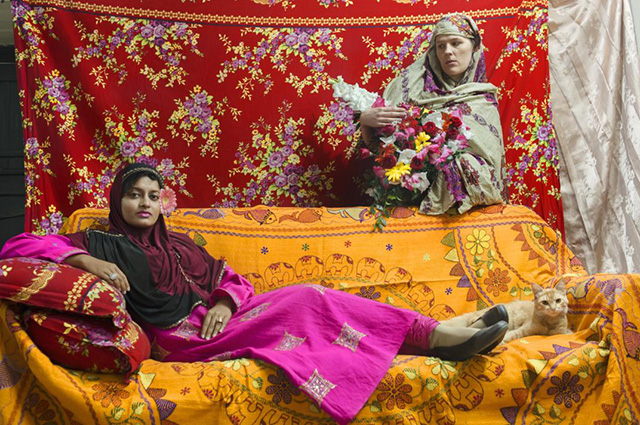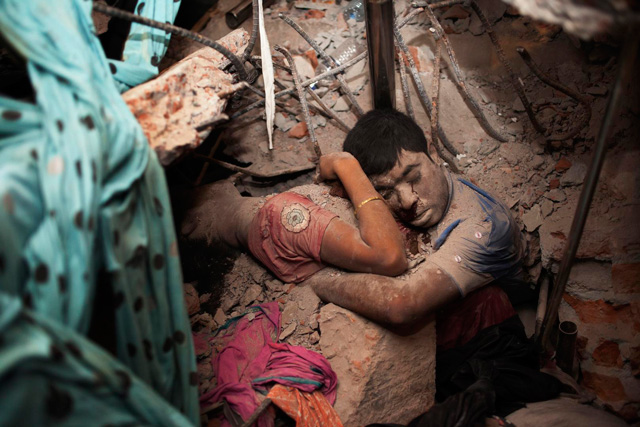A Bangladeshi Night at the Bronx Museum
By Josiah Omotosho
The Bronx Museum hosted a celebration of the Bangladeshi diaspora in New York City with readings from historian and filmmaker Vivek Bald and novelist Tanwi Islam, along with performances of song and dance from local groups.
The event, put on by the Bangladeshi American Creative Collective, is part of the museum’s Transitions photography exhibit. Vivek Bald, who also teaches media studies at Massachusetts Institute of Technology, read an excerpt from his book Bengali Harlem and the Lost Histories of South Asian America. In his work, he presents the account of Bengali nationals that were part of the third wave of South and East Asian immigrants to New York City in the late 1800s; a part of history that, according to Bald, has been “forgotten or largely ignored.” The excerpt dealt with the covert network that formed following anti-immigration laws that placed restrictions on Asian immigrants, as well as with how many of these South Asian immigrants married into already firmly established Puerto Rican and African American communities in Harlem.

Arfun Ahmed, Olympia Burka, 2014
Comedian Aladdin Ullah, whose father Habib is featured in Bald’s book, gave a brief account of his early childhood and career in East Harlem, as well as reminiscing on the diversity that defined that area for much of the 20th century. His father, Ullah said, would, along with other Bengali Muslims, regularly have theological discussions at Indian restaurants with Malcolm X and other Nation of Islam personalities. Ullah introduced a trailer of a documentary – – also named Bengali Harlem — which tells the story of the deceased Habib Ullah’s settlement in Harlem in the 1920s through legal, personal and historic documents. The documentary is produced by and stars Aladdin Ullah himself.
To round off the panelist presentations, novelist Tanwi Islam read an excerpt from her debut novel Bright Lines which tells two stories – one of two Bengali girls in Brooklyn as they navigate sexual and political awakenings, and another of one of the girl’s uncle as he travels back with his family to Bangladesh in other to come to term with past tragedies. The excerpt sees this uncle, Anwar, visit the Liberation War Museum, an experience that gives him vivid memories of the war. “It is good,” Islam quoted, “but very strange to be in a museum about a time we lived through.”

Taslima Akhter, from Death of a Thousand Dreams, 2014
Following the reading, Bald, Islam and comedian Aladdin Ullah were on a panel discussion moderated by Chaumtoli Huq, editor-in-chief of the legal blog Law at the Margins. The panelists discuss the impact of the Liberation War, the resulting wave of Bengali immigrants into the United States that followed, the Bangladeshi-American population in New York today, as well as answering questions on their own academic and creative projects. One audience member asked them to address the concept of the model minority and whether or not it was an insidious one.
The event was punctuated with a performance from New York band The Feringhees — a group that merges traditional Bengali music with fusion and classic rock music — as well as with dance numbers from students of the Bangladesh Institute of Performing Arts.
Saved under Culture, Featured Slide
